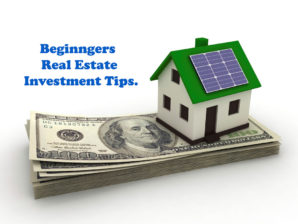How I became a Real Estate Investor
 "Dad, you have to buy these apartments!" said my son who lived in a tiny studio and just began working for the large company. "They are only $40K a piece!"
"Dad, you have to buy these apartments!" said my son who lived in a tiny studio and just began working for the large company. "They are only $40K a piece!"
"Well, I said, let me talk to your mom."
After talking to my wife, I have called a son and said that she does not approve so big an investment in something that we had no clue about. The fact was that I was in agreement with my wife. I have just begun my investments in mutual funds and some stupid penny stocks that I have picked up after reading one investment advisory newsletter. I knew very little about investing in the stock market, and zero in real estate investment.
On one hand, my son's argument was convincing considering the potential income and properties' appreciation over time. On another hand, when 23 years boy gives you investment advice... you do understand, right?
So, I have ignored his advice and almost forgot about it. Eight months later, I happened to read the book where the Real Estate investment was spelled out pretty well. Perhaps, I understood that I don't have to buy it for a full price by putting my saving in but rather "use other peoples’ money".
Needless to say, about a few months later, I have bought my first 400 sq. f. studio for $80K, one of those that was on sale for $40K just about a year ago. Can you imagine? 100% increase in price!
As a buyer, I put down 10% as a down payment and spent a little for the settlement and I've got a $64K mortgage as "other peoples’ money" (a local bank). About 2 weeks later, I had my first tenant who agreed to pay $900/month.
Since the HOA (homeowners association) fee included all utilities, I had a positive cash flow of about $450/month. The rest was an HOA fee and a portion of the property tax.
$450 x 12=$5,400/year.
Not bad, right? It was roughly ~30% yearly return on my $18,000 investment! Something investors in the stocks, CDs, or Treasuries only wish they could have!
I said to myself "Wow!"
As soon as I experienced the potential of investing in Real Estate, I began reading more books about how to be a smart landlord.
I have quickly corrected my Lease Agreement. I have also implemented the so-called Discount Program (read details later), and I became a proactive and smarter landlord.
I have realized why my son was right, and not only about investing "per se". The location of the property was ideal:
- two blocks from the subway station
- close to the restaurants and cafes
- walking distance to the riverfront
- and, most important, close to the prestigious college where many foreign students needed cheap housing.
Bingo!
You probably heard the phrase "location, location, location". That property was exactly what that phrase means.
In addition, each apartment building had local management that could take care of the minor repairs. I had to only notify them and send the payment after they issued the Invoice.
It basically has solved my problem to manage the property that is almost 60 miles away from my home.
Now, as you see how it went, you probably think "buy more properties!"
Yes, I have decided to buy one more. The best price I could find for the same 400 sq. f. studio was $114,000. The price at that location grew like mushrooms after the rain.
 About 1.5 years later, I had enough cash to expand my Real Estate ownership.
About 1.5 years later, I had enough cash to expand my Real Estate ownership.
I used the profit from both studios (at that time, I was charging my tenants $1050-$1100/month), and I also have found one seller who was selling two studios at the same time. With some hesitation, I have decided to buy them.
As you may guess, the price I paid was even higher. I was able to negotiate $132,500 for each property.
With a 10% down payment plus the settlement fee, I've spent about $30K total but I had good positive cash flow from each studio. With added $20K equity line taken in the local bank out of my primary residence, I was able not only to afford the purchase but also to upgrade both studios, so, I was able to charge my tenants about $100-$150 per month more.
Note, that instead of having "dead money" in the form of my home equity that has accumulated over time, I used $20K to generate more money. My calculations have shown that my profit will be above my payments for the equity line.
Needless to say, I was doing quite well. My return on investment was much higher than my return on stocks and mutual funds.
I have become a landlord with four properties and managing four tenants. Yee-ha!!
One of the real estate books has opened my eyes and has turned my view 180 degrees on paying off the mortgage faster.
I have discussed it in my article here: https://mansmanclub.com/mortgage-pay-off-debate/
 As you have already heard, managing tenants is not fun, and I concur! I had my portion of "fun", too.
As you have already heard, managing tenants is not fun, and I concur! I had my portion of "fun", too.
I have to tell you that you won't become a good landlord without going through some hardship. The "fun" with difficult tenants will surely teach you a lot -- something you may not find in the books.
Many homegrown landlords, after coming through bad experiences, sell the investment properties and swear never ever do it again. I can really understand those folks.
It's not a pleasure to find your apartment dirty as hell. It's not a pleasure to get rid of undesired tenants, and it's far not fun getting your monthly payment from an irresponsible tenant who "conveniently" has forgotten about next month's payment.
But, guys, it is an expected drawback of the RE business. If you are expecting that once in a while, you are unlucky and need to take some unpleasant measures, trust me, you will survive.
You may need to incur extra expenses, but in the long run, you will be fine.
What can you do to avoid it, or, if not completely avoid, but, perhaps, minimize it?
- polish your Lease Agreement with the local RE attorney;
- improve the selection of the tenants;
- monitor the condition of your property periodically;
- get rid of troubled tenants earlier than later (because they broke the Agreements or because you are sick dealing with them).
I had one sycophantic lady as a tenant, so I let her go without any penalty. I had another one that promised to be a pain in a$$ from the beginning, and I let her go, too. I have possibly lost a few dollars but have saved myself from a lot of headaches.
This article is not written to scare you with the stories about nightmares tenants but to give you the perspective on what you have to deal with and how to manage to get your positive cash flow no matter what happens.
If you invest in the stock market you know that there is no way you can be successful with 100% of your investments. Earlier or later you lose. The goal is to have more wins than losses. The same is in the real estate business. When you understand it, you will be OK.
I was certainly lucky with those small apartments, but don't think I was lucky all the time. Several years later, I have decided to buy another apartment, closer to my house, so I won't have to manage the property remotely.
I was able to find 2 bedroom apartment, just 10 min drive from my home, for $110K. I have spent about $1,000 on small upgrades and a new carpet.
My two tenants (one after another) were no less than constant trouble. I had payment delays, complains from the neighbors below, and complaints from the HOA.
I've had enough of it, and, therefore, decided to sell the apartment.
To my surprise, I was able to sell it for $138K, just 1.5 years since the purchase. I have lost on tenancy but won $28K (minus the settlement fee) on the property's price appreciation.
I have learned not to be a fool. Now, I never let the tenants bring a pet larger than 10 lb. I have learned to screen the tenants more thoroughly by checking not only the credit history in-depth but also checking the former landlord references and tenants' criminal or court history (if any). I have learned not to land the property to financially troubled people who can't manage their own finances properly (and live from check to check), and also to those who have no cash reserve in the bank in case they lose the job.
Financial stability is key.
In the second part of this article, I will discuss the criteria for choosing the right property, the basic return on investment calculations, and much more.
If you like what you read and want to be notified about future articles, please subscribe for FREE (at the bottom of a page)